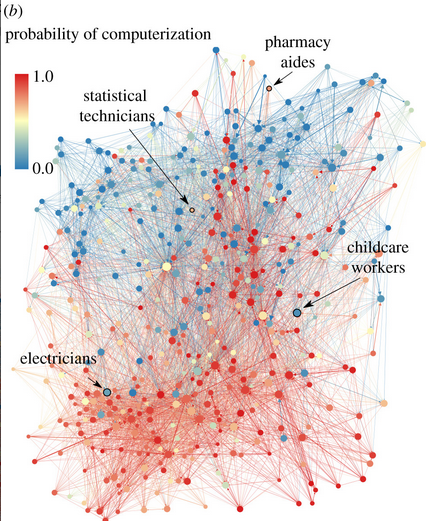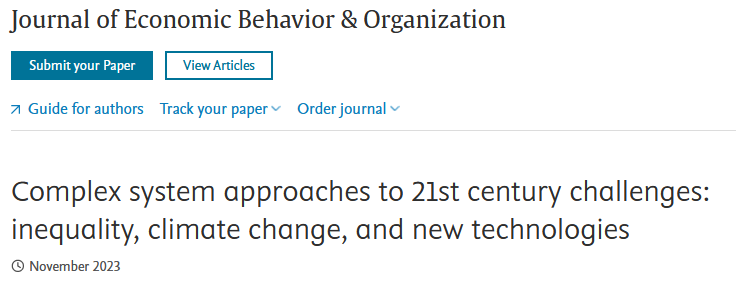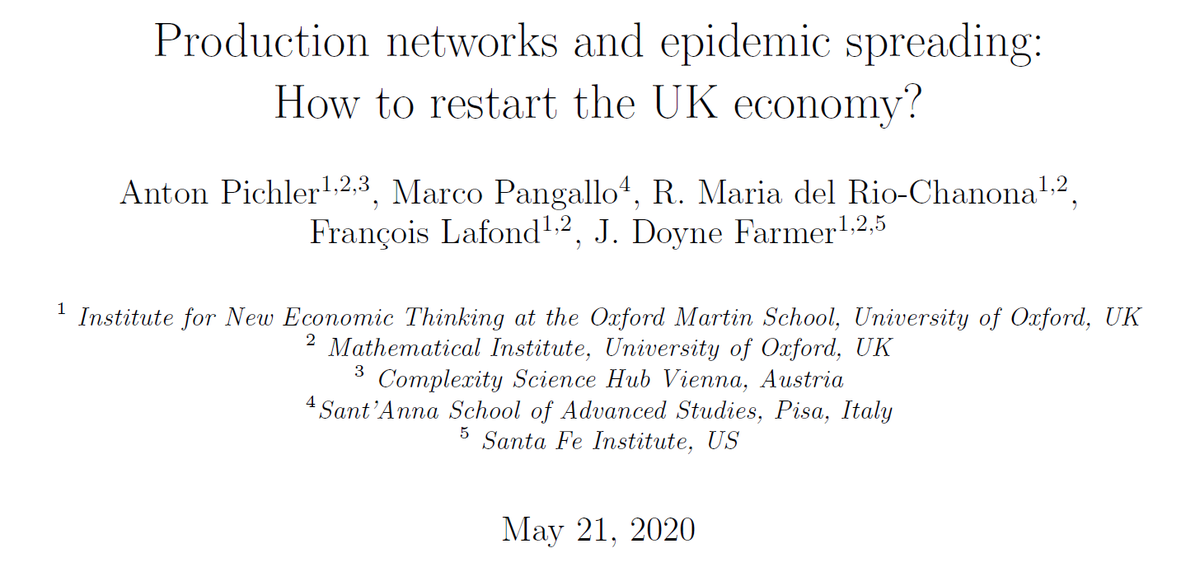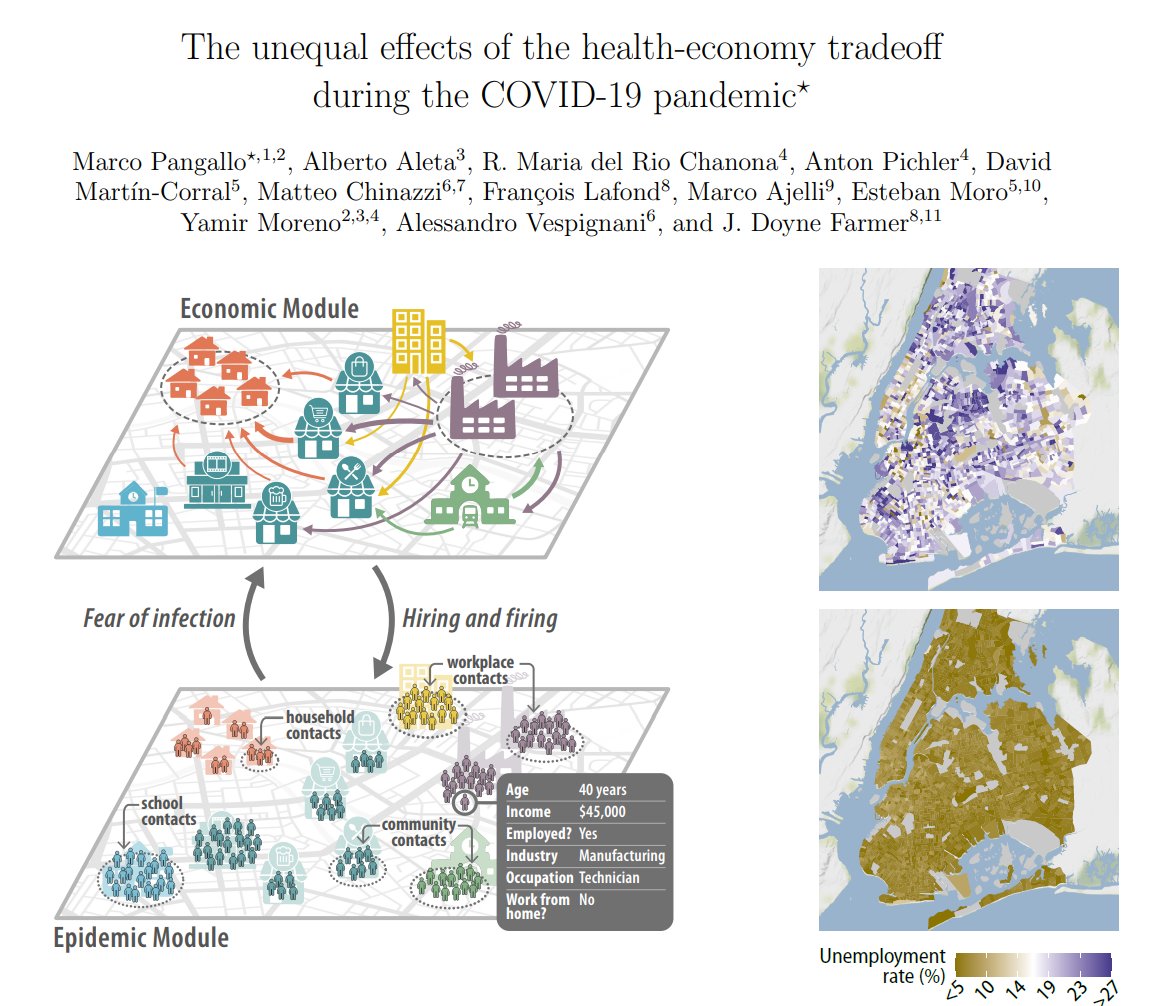
François Lafond
@f_lafond_
@INET Oxford. This account is no longer active. Find me at @francoislafond.bsky.social
ID: 1263504722020970502
https://francoislafond.info/ 21-05-2020 16:20:27
18 Tweet
210 Followers
157 Following


Join our 7th #exitstrategy workshop this Friday on: The Global Production Networks and the COVID-19 Pandemic by Doyne Farmer & @FrancoisLafond4 INET Oxford University of Oxford register now with Richard: [email protected] More info here: rebuildingmacroeconomics.ac.uk/event-details/…


How does the economic impact of the COVID-19 crisis differ by industry? Low-wage occupations are much more vulnerable, find R Maria del Rio-Chanona, Penny Mealy, @AnToniPichler, @FrancoisLafond4, and Doyne Farmer in our new issue: ow.ly/eofs50BCKWh


Just published my new Our World in Data post: • Why did renewables become so cheap so fast? → And what can we do to use this global opportunity for green growth? ourworldindata.org/cheap-renewabl…


New paper out today - R Maria del Rio-Chanona, Penny Mealy, Mariano Beguerisse, @FrancoisLafond4 and Doyne Farmer on occupational mobility and automation royalsocietypublishing.org/doi/full/10.10…



Why is productivity slowing down? New paper with Ian Goldin Pantelis Koutroumpis and Julian Winkler inet.ox.ac.uk/files/Goldin_e…

Mathematics has explained physical, chemical, & biological phenomena, but the economy? Especially given its short & long-term fluctuations? Modelling of labour markets, our latest research case study R Maria del Rio-Chanona Penny Mealy @FrancoisLafond4 Mariano Beguerisse maths.ox.ac.uk/node/39245



Reconstructing production networks using machine learning: Luca Mungo, François Lafond Pablo A. Astudillo 🤓 pastudillo.bsky.social and Doyne Farmer evaluate the feasibility of reconstructing a network when no production network data is available in their new paper #EconTwitter sciencedirect.com/science/articl…


How is the reconstruction of production networks different to other network reconstruction problems and why is it needed? Read the new paper by Luca Mungo, Alexandra Brintrup, François Lafond and Diego Garlaschelli to find out more. inet.ox.ac.uk/publications/n…

A new paper in Science from researchers including @AnToniPichler, François Lafond Doyne Farmer highlights how alliances critical to ensure supply chain security Complexity Science Hub Cambridge University Oxford Smith School Oxford Martin School inet.ox.ac.uk/news/alliances…

We are pleased to announce a call for papers on “Complex system approaches to 21st century challenges: inequality, climate change, and new technologies”, related to a conference that was held Santa Fe Institute this summer - submit by 15 February 2024 sciencedirect.com/journal/journa…


Were lockdowns needed,or would spontaneous behavior change have led to better epidemic-economic outcomes? In our paper just out in Nature Human Behaviour,we address this & other questions by building a highly granular & data-driven epi-econ agent-based model nature.com/articles/s4156… 1/12


We have a new paper out in Corporate and Industrial Change: Measuring productivity dispersion: a parametric approach using the Lévy alpha-stable distribution Jangho Yang, Torsten Heinrich, Julian Winkler, François Lafond, Pantelis Koutroumpis and Doyne Farmer doi.org/10.1093/icc/dt…



